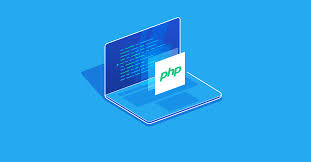Optimizing PHP Code: Memory Management and Garbage Collection
Efficient memory management is crucial for the performance and scalability of PHP applications. Poor memory management can lead to excessive memory consumption, application slowdowns, and even crashes. In this blog, we'll explore strategies for optimizing PHP code with a focus on memory management and garbage collection.

PHP, as a popular scripting language for web development, offers flexibility and ease of use. However, developers often face challenges related to memory management and garbage collection when optimizing PHP applications for performance. In this blog post, we will delve into techniques and best practices for optimizing PHP code, focusing particularly on memory management and garbage collection strategies.
Understanding Memory Management in PHP
Memory management in PHP involves how the language allocates and deallocates memory for variables and data structures during the execution of a script. Unlike lower-level languages like C or C++, PHP abstracts much of the memory management process, which can be both a boon and a challenge for developers aiming to optimize their code.
-
Variable Usage and Scope:
- Efficient use of variables and their scope can significantly impact memory usage. Variables should be declared only when needed and should have the narrowest scope possible to minimize memory consumption.
-
Data Structures:
- PHP handles various data structures such as arrays and objects differently in terms of memory allocation. Associative arrays, for example, can consume more memory than indexed arrays due to their flexible key-value structure.
-
Memory Allocation and Deallocation:
- PHP manages memory allocation and deallocation automatically through its internal memory manager. However, developers should be mindful of memory leaks, which occur when memory is allocated but not released properly.
Garbage Collection in PHP
PHP employs a garbage collection mechanism to reclaim memory occupied by objects that are no longer referenced. Understanding how garbage collection works is crucial for optimizing memory usage.
-
Reference Counting:
- PHP primarily uses a reference counting mechanism for garbage collection. Every time an object is referenced, its reference count increases. When the count drops to zero, PHP frees the memory associated with that object.
-
Circular References:
- Garbage collection can become complex when dealing with circular references (e.g., object A references object B, and object B references object A). PHP uses a secondary garbage collection strategy called cyclic garbage collection to handle such scenarios.
Best Practices for Optimizing PHP Code
Now, let's explore some actionable tips for optimizing PHP code with a focus on memory management and garbage collection:
-
Use Unset() Wisely:
- Explicitly unset variables and arrays when they are no longer needed to free up memory immediately.
phpCopy code
$data = fetchData(); // fetch data from somewhere process($data); unset($data); // free up memory -
Limit Memory Usage:
- Avoid loading large datasets into memory all at once. Instead, process data in chunks or streams to reduce peak memory consumption.
-
Optimize Loops and Iterations:
- Minimize memory-intensive operations within loops by optimizing algorithms and reducing unnecessary variable assignments.
-
Use Built-in Functions Efficiently:
- PHP provides built-in functions like
array_map(),array_filter(), andarray_reduce()that can help optimize memory usage when working with arrays.
- PHP provides built-in functions like
-
Monitor Memory Consumption:
- Use PHP's
memory_get_usage()andmemory_get_peak_usage()functions to monitor memory consumption during script execution and identify potential bottlenecks.
- Use PHP's
Conclusion
Optimizing PHP code for memory management and garbage collection involves a blend of understanding PHP's internal mechanisms, adopting best practices, and using tools effectively. By following the techniques discussed in this blog post, developers can enhance the performance and efficiency of their PHP applications, ensuring they run smoothly even under heavy loads. Embracing these practices not only improves application performance but also enhances overall user experience and reduces operational costs associated with hosting and scaling PHP applications.





